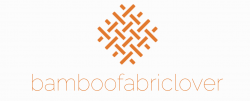Bamboo lyocell, a luxurious and eco-friendly fabric, has been gaining popularity in the textile industry for it’s numerous beneficial qualities. Soft, breathable, and hypoallergenic, it offers remarkable comfort and is perfect for those with sensitive skin. But have you ever wondered who carries this innovative fabric? Look no further. Several reputable and forward-thinking companies have embraced this sustainable material and incorporated it into their product lines. These fashion brands prioritize ethical and environmentally-friendly practices, making them the go-to destinations for bamboo lyocell enthusiasts. From clothing to bedding, these companies have curated collections that seamlessly blend style, comfort, and sustainability, ensuring that conscious consumers can indulge in guilt-free indulgence.
Is Bamboo Lyocell Expensive?
Bamboo lyocell, a type of fabric commonly found in clothing and accessories, offers a plethora of benefits. Unlike genuine silk, which is derived from silkworms, bamboo lyocell is made from the pulp of bamboo plants through an environmentally friendly manufacturing process.
These fabrics are often described as having a silky touch, making them highly desirable for clothing items such as dresses, blouses, and sleepwear.
In recent years, there’s been an increasing demand for sustainable and eco-friendly materials. Bamboo lyocell fits perfectly into this trend, as bamboo is a fast-growing and renewable resource.
It’s comfort, durability, and eco-friendly qualities make it a desirable option for those seeking both elegance and sustainability.
These fabrics are derived from bamboo, but they go through different manufacturing processes to create distinct fabrics. One of these fabrics, lyocell, has gained popularity in recent years due to it’s sustainability and eco-friendly properties. While lyocell and bamboo are closely related, they aren’t the same, and it’s important to understand the differences between the two.
Is Lyocell and Bamboo the Same?
They’re derived from natural sources, specifically bamboo. However, there are differences between these three types of bamboo fabrics. Rayon is produced through a chemical process where bamboo is dissolved in a solution and then extruded into fibers. It’s a versatile fabric with a silky feel and excellent moisture-wicking properties.
Modal, on the other hand, is a type of rayon that’s made using a different chemical process called spinning. This process creates a stronger and more durable fabric compared to regular rayon. Modal is known for it’s lustrous appearance, softness, and ability to retain color well.
Lastly, lyocell is another variation of rayon that’s produced using a solvent spinning process. It’s considered to be the most environmentally friendly among the three types of bamboo fabrics, as it requires less water and energy in it’s production. Lyocell has a smooth texture, excellent breathability, and it’s production process ensures minimal waste and chemical usage.
It’s important to consider these differences when choosing bamboo bedding. Whether you prefer the silkiness of rayon, the durability of modal, or the eco-friendliness of lyocell, bamboo bedding offers a natural and sustainable alternative to synthetic materials.
Lyocell, despite it’s sustainable production process, isn’t a cheap option. With an environmentally friendly method of production, the costs involved are higher, ultimately reflecting in the price of lyocell products. A queen size sheet set, for instance, can range anywhere from approximately $100 to $300. However, the durability, comfort, and eco-conscious nature of lyocell make it a worthwhile investment for those seeking sustainable alternatives in their textiles.
Is Lyocell Cheap?
Lyocell, known for it’s eco-friendly production process, may not be considered cheap when it comes to it’s cost. The production of lyocell involves an intricate and resource-intensive process, adding to it’s overall price. This eco-conscious fabric is derived from wood pulp, typically sourced from sustainably managed forests. However, the extraction and transformation of this pulp into lyocell fibers require extensive chemical processing, including the use of a non-toxic solvent called N-methylmorpholine N-oxide (NMMO).
The high cost of lyocell can be attributed to multiple factors. Firstly, the eco-friendly nature of it’s production process demands meticulous handling and compliance with certification standards. This includes adhering to strict environmental regulations, sustainable forestry practices, and worker safety requirements, all of which contribute to increased costs. Additionally, the need for specialized machinery, chemical compounds, and advanced manufacturing techniques further drives up the price. These factors collectively make lyocell a premium textile choice.
Investing in a queen size sheet set made of lyocell can range anywhere from $100 to $300. The higher price range is often associated with luxury brands and specialized finishes. However, it’s important to note that the durability, breathability, moisture-wicking abilities, and hypoallergenic properties of lyocell make it a worthwhile long-term investment for many consumers.
Although the price tag on lyocell may be higher compared to other conventional fabrics, it’s positive impact on the environment and wearers comfort can’t be overlooked. With it’s efficient moisture absorption and breathability, lyocell bedding offers a luxurious sleeping experience while minimizing the risk of allergic reactions. Moreover, lyocells sustainability credentials align with consumers growing consciousness towards eco-friendly products, making it an ideal choice for those seeking both quality and ethics in their purchases.
Conclusion
From clothing and bedding to home accessories and personal care items, an increasing number of brands are embracing this innovative material.
